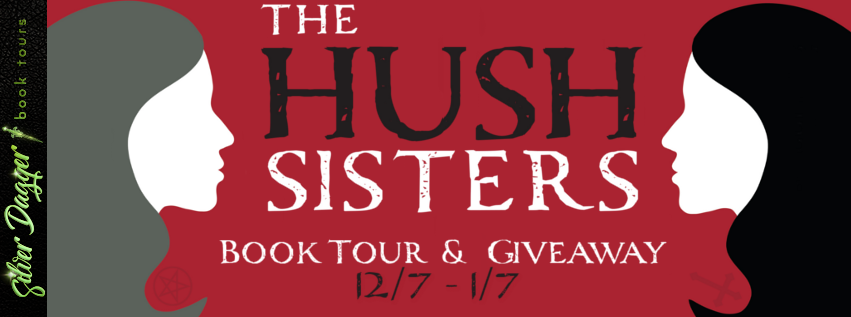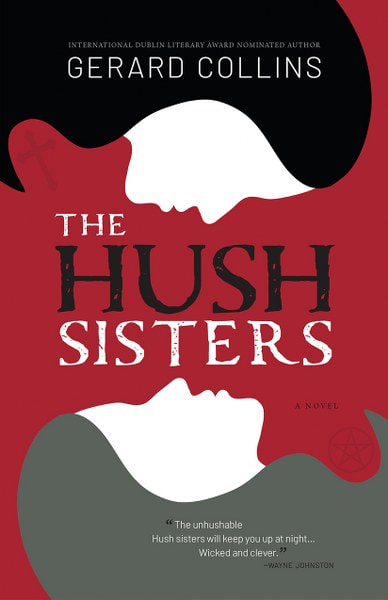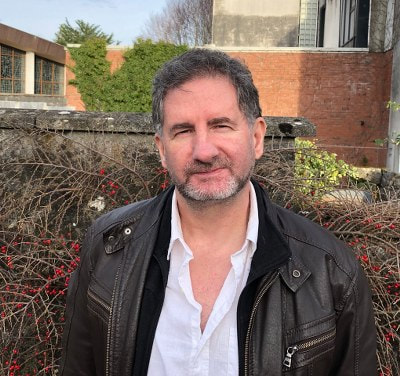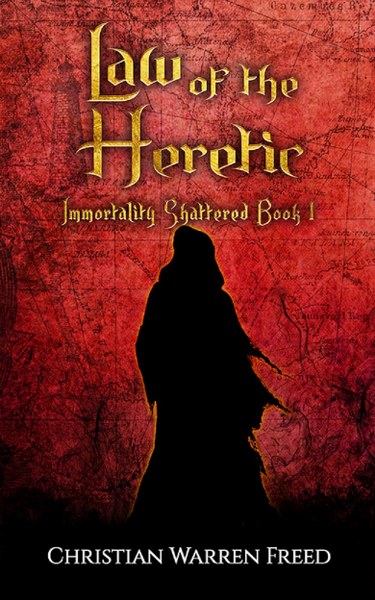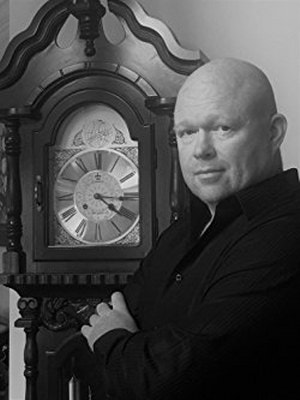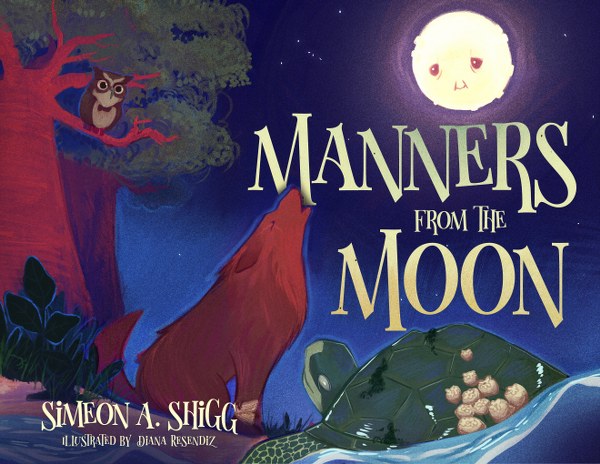Sissy fixed the tea—red mug for Ava and black one for Sissy—and brought it to the table where she took up her favourite seat in the entire house. From there, if she turned around, she had a view of the back garden and, in a natural sitting position, a perfect line of sight through the kitchen and down the hallway toward the curved staircase with its wide bottom step, past the exposed brick chimney opposite the stairs, and all the way to the red front door. “Sorry there’s no sugar or cream,” she said.
“Don’t tell me—you gave them up?” Ava flashed a cheeky grin.
Sissy smiled and said, “Months ago.”
“You’re practically a monk,” said Ava as she drummed her scarlet-painted fingernails on the tabletop. “I don’t know how you stand it here with all this...old stuff.”
While she sipped from her dark mug, Sissy considered her response and wished for the drumming to stop. “It’s comforting to have all these connections to the past.”
Ava’s red-lipsticked mouth appeared to form a question. But instead of speaking, she closed her eyes and tilted her head back. “Listen.” Ava paused, allowing the natural world to have its say—the crick-crack of the walls and floorboards whenever the wind gusted, the long, inquisitive trill of a robin redbreast in one of the trees, and the chitter of a squirrel. “It’s like discordant music.” She smiled.
“The old place has its charms,” Sissy said.
Ava composed herself, willing the humour from her business-blue eyes. “You know I couldn’t live here.”
“I’m not in favour of selling,” Sissy said as she fingered the handle of her mug. “I told you already.”
“But you can’t afford to keep it up. Not by yourself.” Ava sipped her tea. “I don’t know how you live in this old city.”
“Old, old, old,” said Sissy. “That’s all you ever say about things around here. The house is too old. The city’s too old. Our father was too old to keep living here—”
“I still think he would’ve been better off at the old folks’ home till the end.”
“We both would’ve been better off if he’d stayed there.” Sissy could feel herself hardening, on the verge of closing herself off and shutting down. “But I had nightmares about him, especially after Harry…anyway, now we’re deciding this together.”
“It’s an old house, Sissy. It’s too big for you. You told me yourself you can’t afford to run it, financially or otherwise.” Ava glanced past Sissy and toward the garden, out to where the bright yellow sunflower heads bobbed in agreement with the late-summer breeze. “It’s as much mine as yours. I have a say.”
“But I can’t see it as a bed and breakfast. People coming and going. No privacy. Always serving meals, making beds. It’s not how I want to spend the rest of my life.”
“Then come live with me.”
Sissy caught a glimpse of the barefooted ghost girl, leaning out over the curved part of the stairwell that overlooked the entrance to the living room, her hair draping the shoulders of her white dress. Her hands grasped the railing in front of her. Hello, Clair. She didn’t respond, but Sissy could tell Clair was listening by the way she became very still.
“You know how I feel about Toronto, Ava. You know.”
“Yes, well, you’re not the first girl from St. John’s to hate Toronto.”
“It’s cold there. And dark. And money-driven.”
“And it’s not St. John’s. You might as well admit it. You hate change. You always have, and now when there’s an opportunity—”
“Opportunity? I have a life too, Ava. Look around you. Our parents, love them or hate them, lived here. Their parents built this house, and now I live in it too. Harry and I shared a marriage here. We were married in the backyard.”
“And you’ll be buried in the backyard, too?” Ava shrugged. “It’s just a house. I mean, sure, it’s big and glorious in its own way. In spite of everything bad that happened here, we had some fun times. I get it. My God—the big dinners, the fancy cars in the driveway. The Craigmillars. The Monroes. They all came here, didn’t they?”
“I used to hide in my closet till they were gone.”
Clair turned her head slightly toward the kitchen.
“I know you did,” said Ava. “I assumed it was just too much for you.”
Clair suddenly sat down on the fifth step and started to rock, as she often did, a motion Sissy could vaguely detect.
“They all loved you. You were the cute one that sang and played ‘Silvery Moon’ on the Steinway.” Sissy nodded toward the living room where the Victorian grand piano, with its reddish-brown mahogany satin finish, sat facing the wall.
“It was expected.” A shadow crossed Ava’s face, which caused Sissy to study her older sister, the unexpected softness of her features, especially the crow’s feet. The blonde hair suited her, she supposed. “You could have played, too,” Ava continued. “You play beautifully.”
“I didn’t want to.”
“That was your choice.” Ava grinned. “‘Amazing Grace,’ I remember. You played lots of hymns and Irish music.”
Sissy shrugged. “I’m just not as comfortable with attention as you are. I played for myself.” She sauntered to the living room and stood beside the piano. “You have even more memories here than I do.”
“Mostly bad ones.” Ava turned and watched Sissy as she caressed the edge of the closed key cover of the piano.
Sissy lifted the cover, which made its usual soft thump, and peered into the keyboard. She jabbed at a black key, a sombre A-flat that travelled and lingered, till at last it fell to a whisper and then became silent.
“But we’ve barely even talked about the bad ones.” Ava followed Sissy into the living room as the note vanished. She sat down on the piano bench, as Sissy drifted away. “We’re a family of mutes,” said Ava.
Sissy closed her eyes, feeling as if she were leaving her body. When she turned and opened them, she found herself looking at the Rostotski portrait over the piano. “What’s done is done. Talking about it wouldn’t serve any purpose.”
Ava looked up at the same portrait. Through the upper corner of the living room window, sunshine streamed in and struck a mirror on the opposite wall above the fireplace, which reflected toward the piano and divided the photograph—the older sister awash in amber light, the younger one shrouded in darkness. The sisters thought of it as their own private Stonehenge, when the sun struck that mirror at the precise time of day, during a certain time of year, to light up the half the Rostotski.
“I remember when that was taken.” The conviction in Ava’s eyes intermingled with sadness. The waning sun shone on the left side of her face as well as that of her youthful likeness. For a moment, she seemed suspended in time, halfway between fact and fiction. Reality and dream. Present and past.

